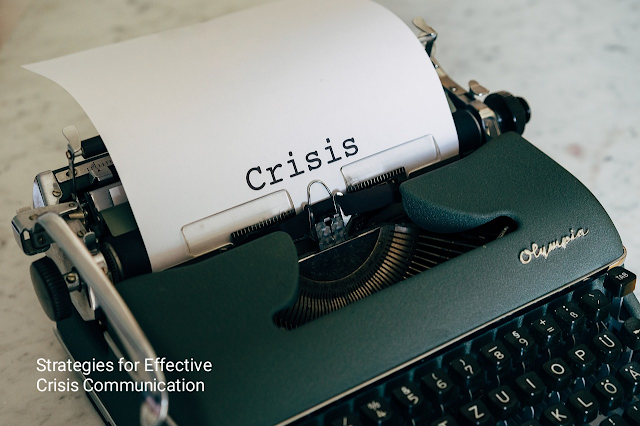Strategies for Effective Crisis Communication
In today's fast-paced and interconnected world, businesses and organizations face vulnerabilities to various crises that can jeopardize their reputation, brand, and operations. Effective crisis communication is paramount in managing these situations. It not only aids in lessening the impact of a crisis but can also transform it into an opportunity for positive change and growth. In this article, we will delve into strategies for conducting effective crisis communication.
1. Preparedness and Planning
Proactive crisis communication commences with preparation. Organizations should establish a well-defined crisis communication plan in advance of any crisis occurrence. This plan should delineate the roles and responsibilities of the crisis communication team, establish communication protocols, and identify potential crisis scenarios. Preparedness ensures a swifter and more efficient response when a crisis unfolds.
2. Transparency and Honesty
During a crisis, transparency and honesty are of utmost importance. Furnish the public, stakeholders, and the media with accurate and timely information. Steer clear of concealing or manipulating facts, as such actions can exacerbate distrust and lead to backlash. Acknowledging the issue and taking responsibility showcases integrity and a commitment to resolving the crisis.
3. Empathy and Compassion
Exhibit empathy and compassion towards those affected by the crisis. Address their concerns and needs with sensitivity. This human-centered approach aids in cultivating trust and understanding during trying times. Expressing concern for the well-being of individuals and communities impacted by the crisis is pivotal.
4. Consistency in Messaging
Consistency in messaging is pivotal to prevent confusion. All communication channels, including press releases, social media, and spokesperson statements, should convey a unified message. Ensure that all employees and representatives are well-versed in the official messaging and maintain alignment.
5. Active Listening
During a crisis, it is imperative to actively listen to stakeholders and the public. Monitor social media, news coverage, and feedback from the community to assess public sentiment and concerns. This data can guide your communication strategy and facilitate the effective addressing of evolving issues.
6. Media Relations
Sustaining favorable relations with the media is crucial. Designate a dedicated media spokesperson to handle media inquiries. Provide them with accurate information and, when necessary, extend invitations for interviews or press conferences to address queries. Timely engagement with the media can assist in shaping the narrative and upholding a positive public image.
7. Utilization of Technology
Leverage technology to swiftly disseminate information. Social media, email newsletters, and websites serve as invaluable tools for reaching a wide audience. Create a dedicated webpage or landing page on your website tailored to the crisis, centralizing information and updates for stakeholders.
8. Monitoring and Evaluation
Following the subsiding of the crisis, assessing the effectiveness of your crisis communication becomes essential. What tactics proved successful, and which areas could benefit from enhancement? Employ this feedback to refine your crisis communication plan and make necessary adjustments for future preparedness.
9. Continuous Learning
Crisis communication is a perpetual process. Gather insights from each crisis and adapt your strategies accordingly. Contemplate the organization of crisis simulation exercises to train your team and test your crisis communication plan. Continuous learning and adaptability are pivotal in an ever-evolving environment.
Conclusion
Effective crisis communication entails more than just reacting to a crisis; it encompasses preparedness and strategic management. By adhering to these strategies, organizations can navigate crises with transparency, empathy, and resilience. The manner in which a crisis is managed can profoundly influence an organization's reputation and the trust of its stakeholders.


Post a Comment for "Strategies for Effective Crisis Communication"